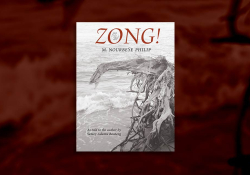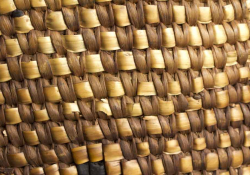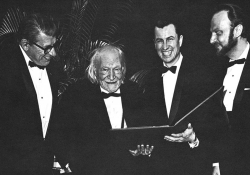Of Bards, Collies, and Tywysogion
From the poets of princes known as Beirdd y Tywysogion to Led Zeppelin’s “Stairway to Heaven,” the history, mythology, and landscape of Wales—and her border collies—have inspired generations of writers.
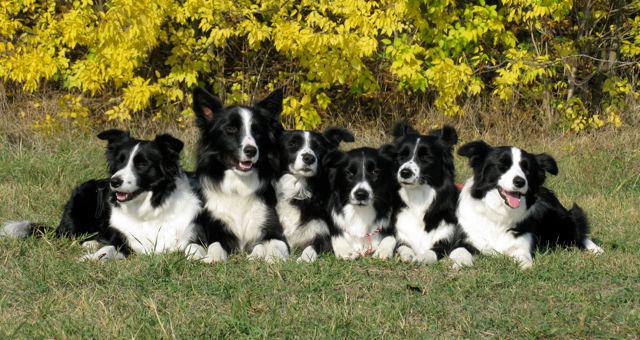
They have inhabited the hills of Wales for a thousand years.
One of Zin’s great-great-great grandsires was called Mirk. Her paternal great-great-great granddam went by the name Siân. Back in the 1960s, there were as yet few flower children in the mountains where Zin’s ancestors grew up, but that soon would change. One week in April 1973, I, future guardian of Zin, progeny of Mirk and Siân, traveled along bendy bumpy roads into Snowdonia with some student friends. We spent a week stomping across dark-green fields with grazing sheep, scrambling through abandoned slate mines in North Gwynedd, and scaling steep coastal slopes not far off in the Vale of Llangollen. Below us down the bracken-covered cliffs pounded the Irish Sea.
It was really an unremarkable week anyway I look back at it. But it wasn’t inconsequential in the bigger scheme of things. None of us became slate miners. The two couples with me went on in the years after the trip to have five children. Several decades later a succession of Welsh-bred border collies adopted me. And though we did not hear it then, there was poetry and music being recorded in the mountains that resonate to this day.
In the High Middle Ages extending from around 1000 to 1300, bards, musicians, poets, and princes settled in these mountains. There were even poets of princes known as Beirdd y Tywysogion. Court poetry was written and recited and was collected into an anthology referred to reverentially as Llawysgrif Hendregadredd. When compared to The Tale of Genji, begun at around the same time, the “Hendregadredd manuscript” seems obscure. So is the Middle Welsh collection of fifty-six poems called Llyfr Taliesin. Appearing early in the fourteenth century, some of the verses date back four centuries earlier, well before the story of Japanese high courtiers began to be written. The belief that the “Book of Taliesen” contains a number of poems written by the Dark Age bard Taliesin called Ben Beirdd (“Chief of Poets”) is probably unfounded. Depending on what part of the sixth century he lived in, Taliesen may have been a bard and mythic companion of the mythic King Arthur, but it is unlikely the verse he recited survived intact.
Bards were an essential feature for Welsh rulers for centuries. According to early Welsh law codified in the Cyfraith Hywel (“The Law of Hywel,” who was king of Wales up to 950), a prince—never mind King Arthur himself—was expected to retain bards at his court. The chief bard was named the Pencerdd and was allotted a special honored place at the court. When he performed he was required to recite his verses twice, once in honor of God, once in honor of the prince. Render unto Tywysogion what is due them was the operative principle.
One of the most celebrated of Welsh poems is an elegy to the last native prince of the country, Llywelyn ap Gruffydd, who lived from 1223 to 1282. A year after he died, Wales fell totally under the rule of Edward I and the English. With Llywelyn’s death the era of court performances by bards and musicians came to an end. But the early Welsh elegies, praise songs, hymns, and verses were to shape the mythology and the folklore of the land.
Poetry after Llewelyn survived, if of a slightly more mundane kind. Fifteenth-century bard Guto’r Glyn composed a verse to the dean of Bangor asking that a shipload of slate be sent from Aberogwen to roof a house near Denbigh.
Back in those times there were many wars, of course. Waves of strange-looking, strange-speaking peoples disembarked along the coast while others made their way into the valleys from the east. In the region that made up the former Kingdom of Gwynedd, where I stayed in 1973, mountainous terrain made it difficult for foreign invaders like the Anglo-Normans to impose their will on local inhabitants. But in time impose their will they did.
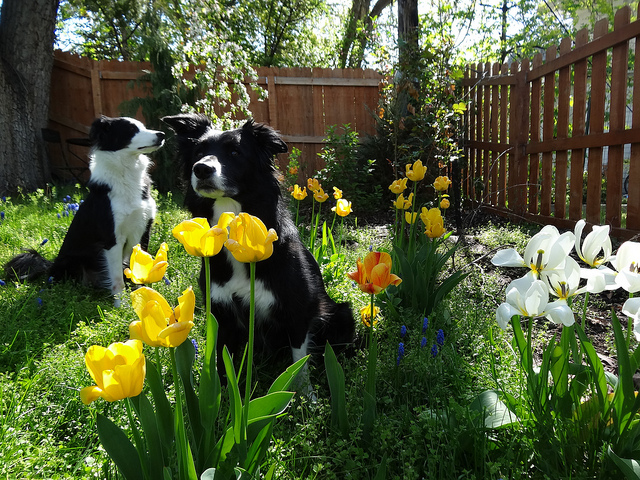
The landrace collies dashing madly across the Welsh hills in the Middle Ages tried to put the strangers out of mind. They behaved as if nothing really changed with the arrival of odd, unintelligible people. But they also instinctively knew that adapting to change was the only way forward. Impermanence had defined their short, nasty, and brutish lives. The choice the collies faced was stark: either beat the Anglo-Norman aliens at their own game or join them. The distant ancestors of Siân and Mirk, of Zin, Zephyr, and Zia—the three border collies I have been adopted by—were those who chose to adapt to the unpredictable and erratic humans.
The most memorable part of my 1973 sojourn in Snowdonia was the weather. It rained every day, turning the emerald hills lusher. As we hiked through the hills, we were aware that we were being watched attentively by flocks of sheep. They in turn were watched over by the well-bred descendants of the lace collies.
Where we stayed was not far from Machynlleth, site of a parliament convened in 1404 by Owain Glyndŵr, the last Welshman to be Prince of Wales. Owain was a symbol of the old royal houses of Wales even though he studied in London and, for a time, served as a loyal soldier of the English king. But he returned to Wales, married Marred ferch Dafydd, who was from a border family, spoke both Welsh and English, and started an anti-English national rebellion.
Owain, for his part, was less swayed by a sense of impermanence than the collies. He was unwilling to accept the demands of outsiders, embodied in particular in the repressive anti-Welsh reign of Henry IV. On 16 September 1400 Owain raised his standard near Ruthin in the Vale of Clwyd, signaling the outbreak of a twelve-year revolt that was to capture the Welsh imagination. Owain appeared to be fulfilling the mystical medieval prophecy of the rising up of the red dragon. The four-man parliament of 1404 got off to a promising start by drawing up mutual recognition treaties with France and Spain. It was at Machynlleth that Owain was crowned king of free Wales. If the English did finally impose their will on Wales, Owain, like the Shawnee chief Tecumseh in the War of 1812, disappeared without a trace, inspiring a new cycle of myths. Tales of early explorers in the New World encountering Native Americans speaking Welsh have never been completely dispelled. In addition, to this day the fearsome exhortation “out with Owain and his barefoot scrubs” continues to inspire Welsh nationalists. In 2000 all of Wales celebrated the six hundredth anniversary of the rebellion.
Machynlleth is also significant because not far from it stands an eighteenth-century stone cottage called Bron-Yr-Aur. In Welsh it means “gold-breasted hills”—to adopt a Homeric-style translation. “Gold-breasted” because sunrise paints the hilltops for a brief time with a gilded tint. But such a description comes across more as a figure of speech. Wherever we hiked that Welsh spring four decades ago, there was drizzle and mist. Our positive thinking in chanting “Here Comes the Sun” changed nothing.
It’s a mystery, then, why at about that time a thin, pale young Englishman would want to buy a sheep farm in those hills. Robert Plant had grown up along the Welsh border and, like others before him, became attracted to the mystique of Welsh history and the impenetrability of the Welsh language. He was so taken with mythology (not just Welsh) that he named his firstborn son Karac after the first-century British chieftain Caratacus, who had saved his life by making an impassioned speech before the Roman emperor Claudius, against whom he had taken up arms.
April showers seemingly without end did not dampen Robert Plant’s determination to insert himself into the historic Gwynedd region and breathe in Welsh history. It may have been the following year that I, too, undaunted by the rain and attracted by the mystical and numinous and surreal—defining features of flower power—drove down from Warwickshire, where I was living, to south Wales to bid on a rural cottage in the border country. A tributary of the River Wye which marked the Monmouthshire–Gloucestershire border ran through the property.
These were the first years of Londoners buying up Welsh cottages for weekend use. How was I to know that living near Warwick? The Welsh backlash to the Londoners came a bit later when the scale of land transfer became known. Between 1979 and 1994, three hundred English-owned homes in Wales were firebombed by a belligerent Welsh organization called Meibion Glyndŵr (“Sons of Glyndŵr”). Fear of the Welsh—Cymrophobia—grew. The most cutting of criticisms may have been that of an English broadcaster on the BBC. “Give them a Grand Slam and the next thing you know, all our holiday cottages are on fire.” During its golden era in the 1970s, the Welsh national rugby team was a dominating force. It completed Y Gamp Lawn (a household term in Welsh meaning “the Grand Slam”) three times, sweeping aside English, Irish, Scottish, and French sides in the same years. They also were Five Nations champions eight times between 1969 and 1979. It was after that that the torching of English-owned houses began. What a wonder it was to watch fullback J. P. R. Williams, long hair blowing in the wind, rush upfield to score or set up a Welsh try.
It was a motivated Londoner in a red sports car—and not a mystic—who placed the highest bid on the cottage by the Wye.
I suffered a second disappointment soon after. Five of us interviewed for a job at the Polytechnic of Wales. Only one of us could speak Welsh. The result? Another Welsh Y Gamp Lawn of English speakers.
Plant, his drummer friend John Paul Jones (a Londoner who unwittingly adopted this Welsh surname), and an ambitious gritty guitarist named Jimmy Page rented out the Bron-Yr-Aur cottage in 1970 after ending a lengthy concert tour. They jammed much of the time they were there—echoes of Bob Dylan, Robbie Robertson, Levon Helm, and friends doing jam sessions in a house nicknamed “The Big Pink” in New York State a few years earlier. There was no running water or electricity in the Welsh cottage. It proved ideal for concentrating on acoustic guitar riffs, if not on hygiene.
About that cottage Plant remembered how “after staying there for a while and deciding it was time to leave for various reasons, we couldn't really just leave it and forget about it.” The gold-breasted hills, whether visible or only in the imagination, proved inspirational. Several songs were written that are iconic to this day. The circle would go unbroken: Gwynedd had once been the cradle of medieval Welsh literature.
The eponymous instrumental that Page recorded in the cottage was eventually released on the band’s 1975 album they called Physical Graffiti. Not to be confused with that track, “Bron-Yr-Aur Stomp,” with lyrics by Plant, was already included as a track on their 1970 album. A bootleg of the jam sessions at Bron-Yr-Aur has surfaced. It is entitled Another Way to Wales, but whether a song of the same name exists, no one is absolutely sure. Our hiking trip to the area in 1973 had nothing to do with the search for a song that took on the aura of a holy grail. The quest for the Holy Grail did become the purpose of several later trips I made to Somerset.
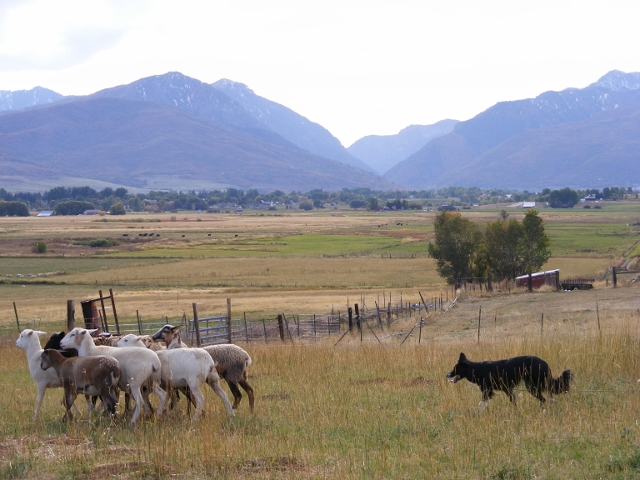
At first listen, “Bron-Yr-Aur Stomp” sounds like a love song that captures the moments of joy shared by a man and a woman. The two are inseparable wherever they go. Their love is abiding and strong, say the lyrics. But I can visualize what Plant saw around him while writing the words to the song. The hills around the cottage are dotted with sheep. At the end of each day, border collies appear out of nowhere to herd sheep to safe locations. Plant himself gives it away by including a couplet in the song that makes clear what this “relationship so pure” between the two intimates really encompasses:
Tell your friends all around the world,
Ain’t no companion like a blue-eyed merle.
A poet of the princes? Maybe not. But a bard of sheepdogs certainly.
Plant describes future walks that he and his sheepdog, Strider (as the Hobbits nickname Aragorn, Ranger of the North, in Lord of the Rings), will take. Even “When you’re old and your eyes are dim,” he promises the collie:
We'll still go walking down country lanes,
I'll sing the same old songs,
Hear me call your name.
Welsh, Norse, and Tolkien mythology gave shape to Plant’s imagery. But let us not forget the collies.
Let me suggest, then, a fresh reading of “Stairway to Heaven,” also started on by Plant and Page in North Wales in 1970. This seems called for given that an early line counsels, “you know sometimes words have two meanings.” So the verse “There’s a lady who’s sure all that glitters is gold” may, like the early stanza in “Bron-Yr-Aur Stomp,” intentionally be misleading. The song may not be about a wealthy woman who wishes to buy a stairway to heaven at all. It can be another conversation Plant is having with his sheepdog.
I can imagine Redtop Riggs, Zin’s dad, having these words whispered to him by his handler as he sets out on his final outrun at the 2010 US National Sheepdog Championships in the hills of Virginia. The outrun is crucial to the dog’s performance, not just because it is timed. Ideally it should also line the collie up directly behind the sheep for the lift—the moment when the sheep begin to move in orderly fashion under the collie’s influence.
All attention, Riggs listens to the words of his handler and the hint they contain:
Can you hear the wind blow, and did you know
Your stairway lies on the whispering wind
Further instructions follow, which remind Riggs that a border collie’s greatest talent is its
independent decision making:
There are two paths you can go by, but in the long run
There’s still time to change the road you’re on.
Riggs dashes away, disappearing up the stairway. Left alone at the post, his handler can only sigh to himself: “And it makes me wonder.”
Riggs’s dam was Eryri Gill, a dog brought over from Wales to an Idaho farm, and his grandsire was Tweed, also Welsh bred. After the trial, Riggs’s handler said that “he was a good outrunner from the very first day.” Essential to preparing for the lift was a flexible disposition: “He has a very calm approach to the sheep but will not hesitate to put pressure on sheep if asked or needed.” His Welsh pedigree proved invaluable.
On that sunny, late autumn day Riggs won the US national sheepdog trial. The wise words from “Stairway to Heaven” echoed in his head as he finished penning the sheep. Back in Utah, his two-year-old daughter, Zin, appeared very proud that day. I thought back to the steady drizzle and mountain mist of Snowdonia in 1973 and now understood why my script has unfolded as it has.
And it makes me wonder.
